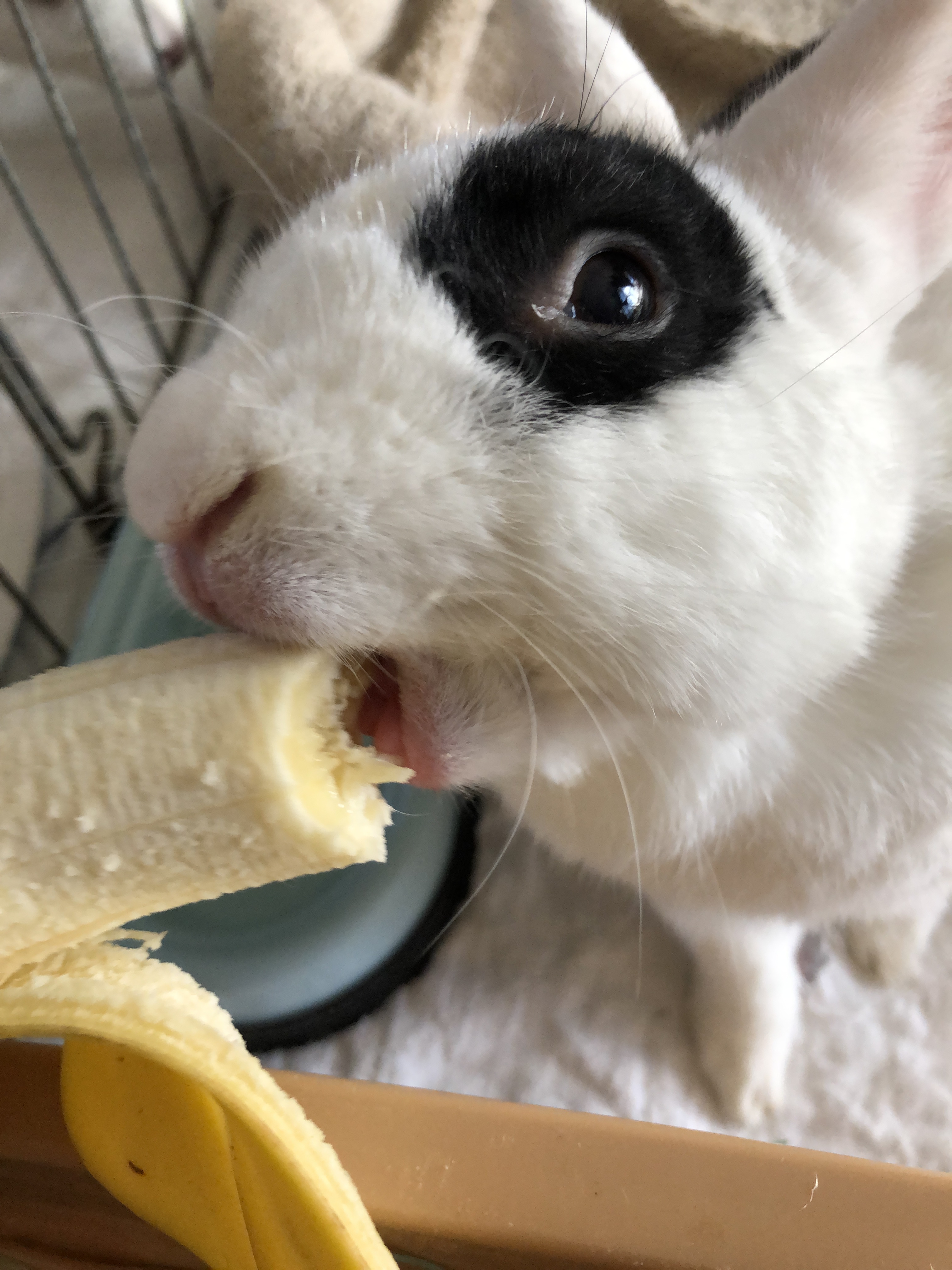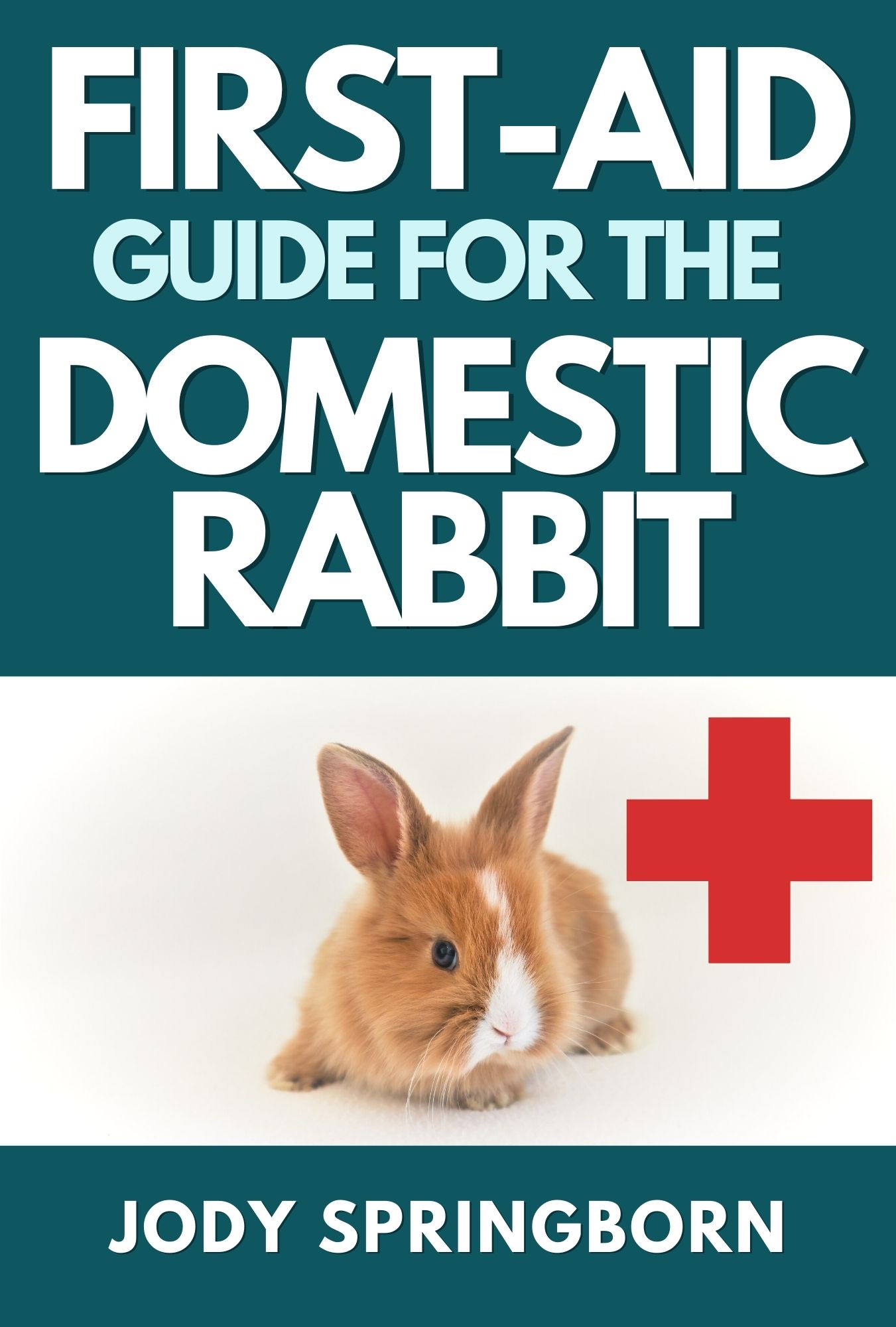- Home
- Rabbit Diet
Rabbit Diet
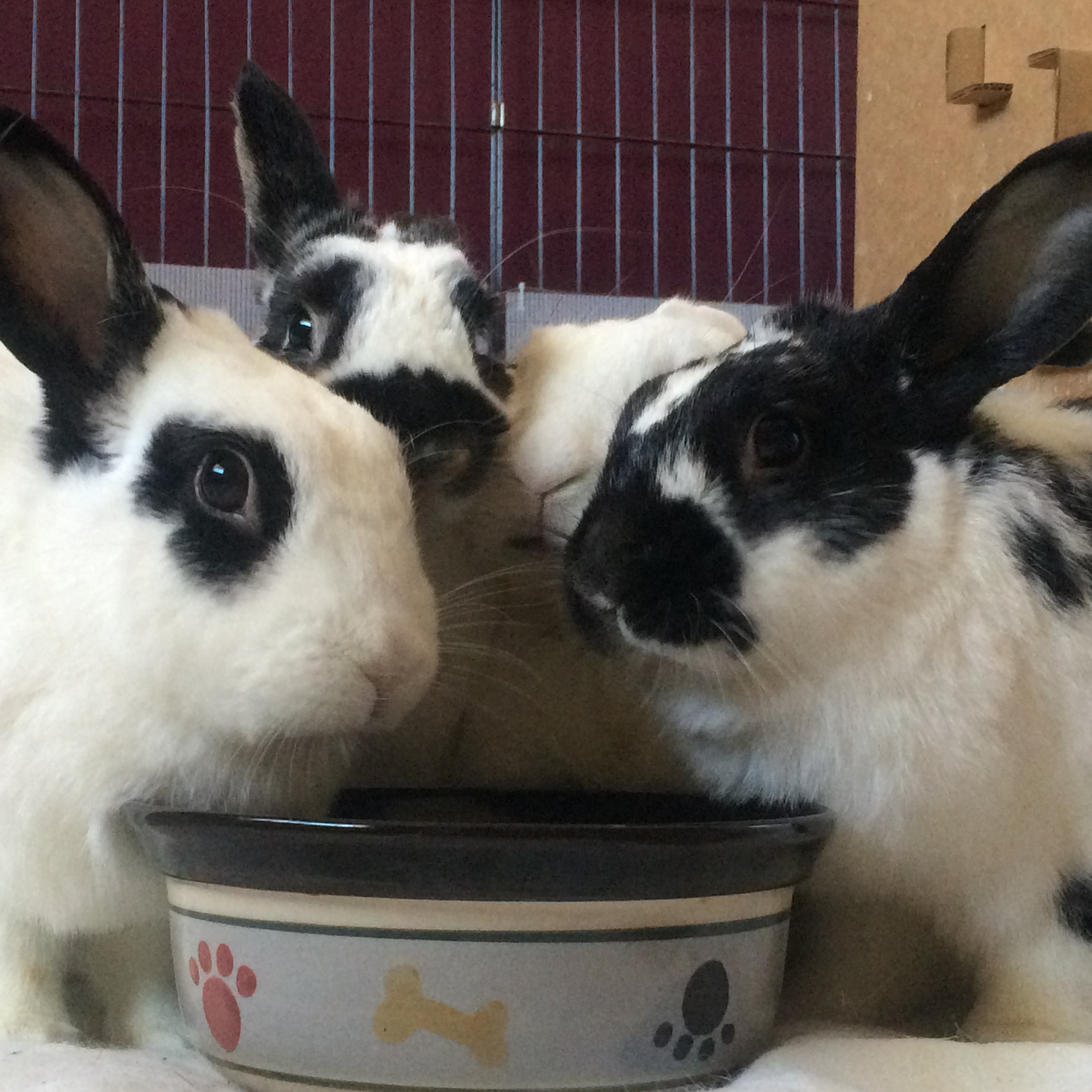 Zoe, Oso, Emma and Whoppy
Zoe, Oso, Emma and WhoppyWhat's for Dinner?
Rabbit diet is probably the most important topic when it comes to bunny ownership. It will establish the health and longevity of the rabbit, and it will be the most obsessive thing owners will worry about. Everyone has their own opinion of this topic, and I will describe what has worked for me, and the numerous bunnies that have come to live with me over the years.
Feed Them Right
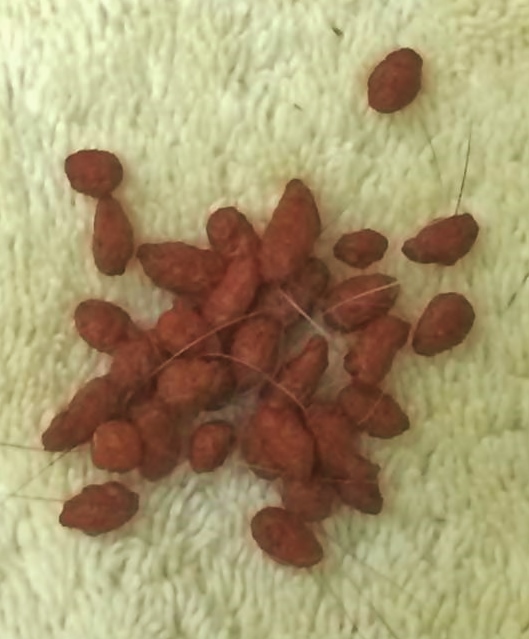 Orange poop is the result of a carrot-only diet. This young rabbit died within the hour of being rescued.
Orange poop is the result of a carrot-only diet. This young rabbit died within the hour of being rescued.Let’s address the first thing: A proper rabbit diet is not only carrots and water. Just because we all grew up watching Bugs Bunny, it doesn’t mean Looney Tunes is a nature documentary for kids. Stop looking to Saturday morning cartoons for advice on how to take care of an actual rabbit.
Now to be fair, rabbits do love carrots and would gladly eat them all day long, every day. This would be the equivalent of you eating nothing but chocolate cake. A cake-only diet may not kill us in the short term, but the same cannot be said of a rabbit. The result of a carrot-only diet usually results in death after a couple of months.
A rabbit’s digestive system is complex. It is a large part of the rabbit’s biology, and it is critical to keep it in balance so your bunny stays healthy, happy and most importantly - alive! Fiber is crucial. A diet high in sugars and starch can alter the pH of the GI tract and adversely affect the beneficial bacteria in the gut vital for healthy digestion.
Proper Rabbit Diet
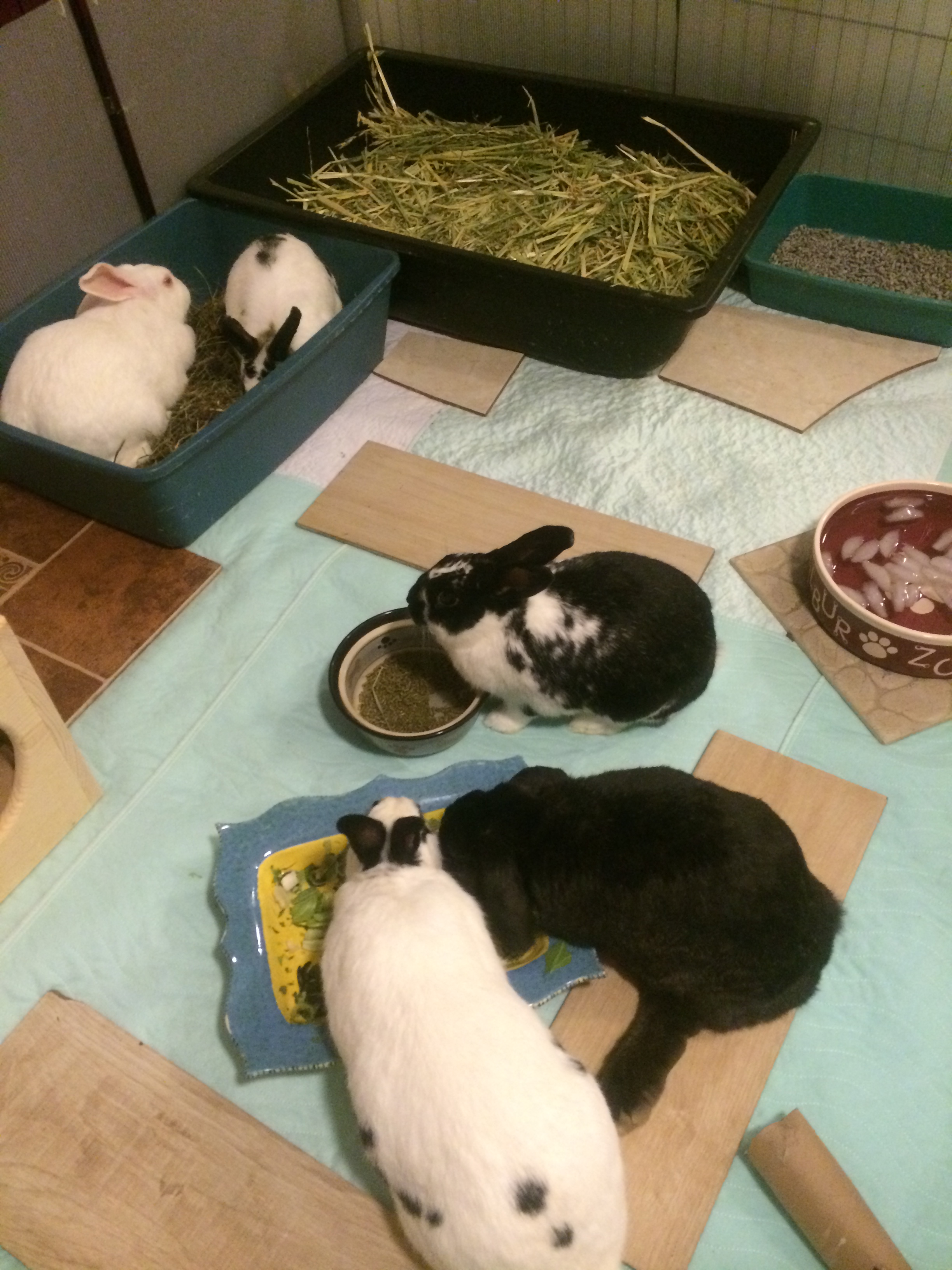 Emma and Oso are eating hay in the litter box, while Whoppy is having some pellets and Zoe and Wilbur are finishing up the last of the lettuce.
Emma and Oso are eating hay in the litter box, while Whoppy is having some pellets and Zoe and Wilbur are finishing up the last of the lettuce.In a nutshell, a rabbit’s diet should be 75-80% hay, 15-20% fresh vegetables, 5% pellets and treats. Other sources may say 75% hay, 20% pellets and 5% fresh vegetables and fruits. The reason for this is because pellets are packed with all the vitamins and minerals a rabbit needs to stay healthy. However, too many pellets can cause obesity and soft stools. Fresh vegetables are “wet fibre,” which still provides nutrients and water, and limits the amount of sugar. Vegetables also add interest in their diet and make dinner time exciting. Of course, unlimited fresh water should also be available. Rabbits actually consume much more water per body weight than many other animals, such as dogs, so make sure there is always water present.
Should I Feed Organic?
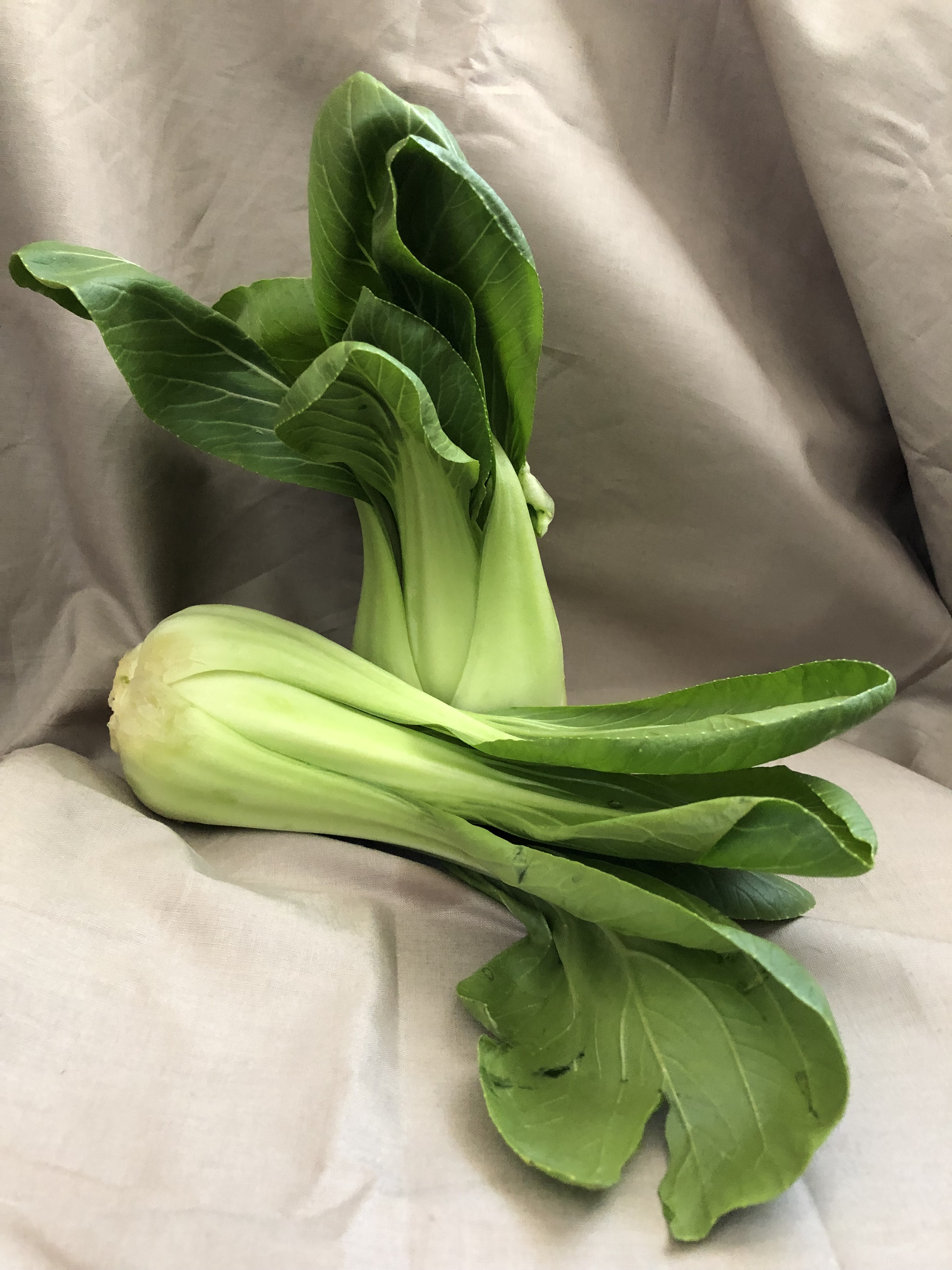 Baby Bok Choy
Baby Bok ChoyJust a word on organic. I have been asked by owners over the years whether or not they should buy organic. At this point, no one I am aware of (at least in Southern California) sells organic hay. Organic pellets tend to be less sweet, and therefore bunnies are usually not that enthused about them. If you can afford to buy organic vegetables, that’s great, but for those that find the cost prohibitive, just buy what you can afford. If the choice is buying non-organic vegetables or rehoming your bunny, buy non-organic. For the most part, I buy non-organic and my bunnies have lived long lives with minimal digestive issues.
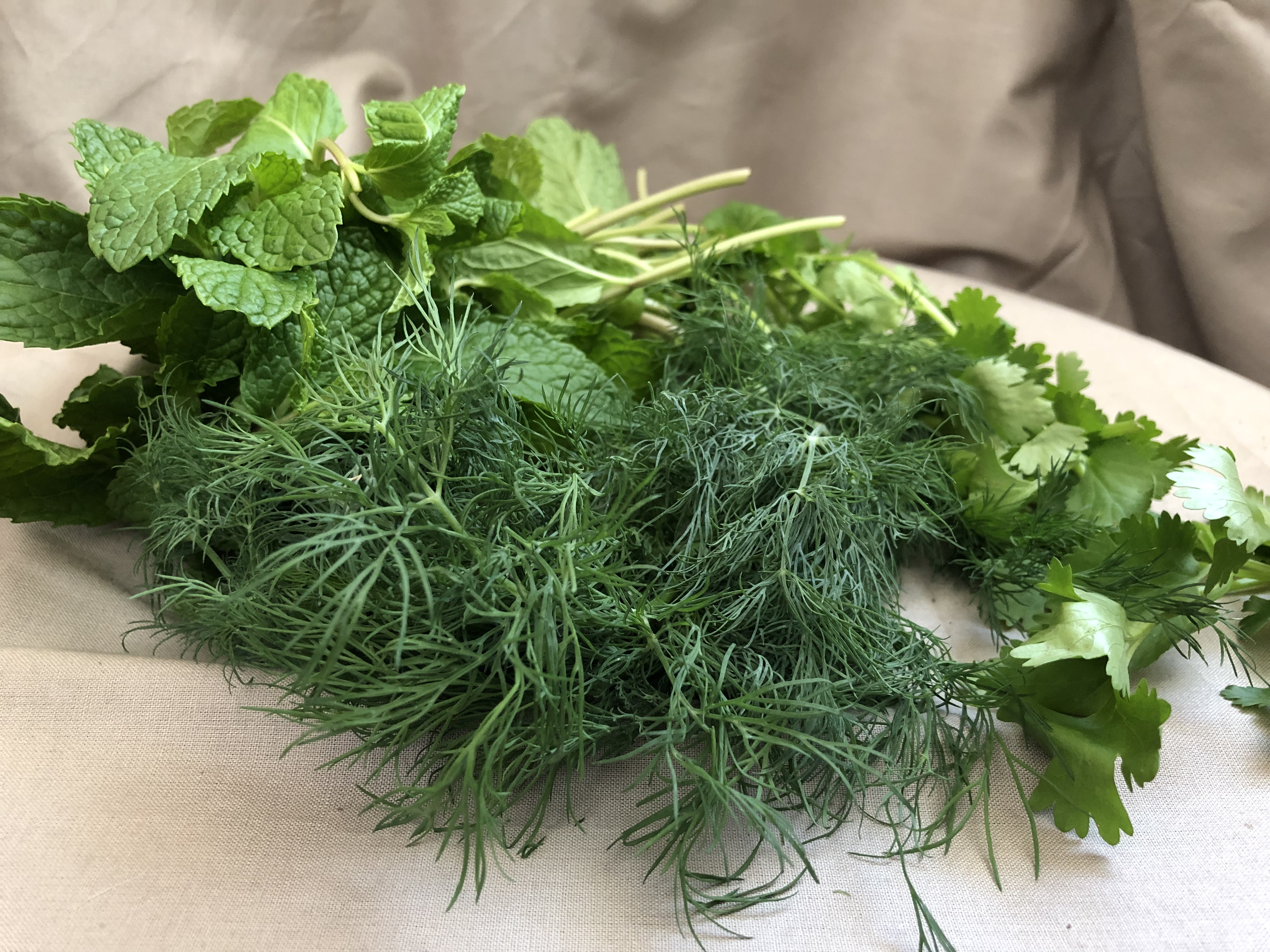 Mint, dill and cilantro
Mint, dill and cilantroWhen introducing new kinds of hay, pellets or vegetables into your rabbit's diet, start gradually. For hay and pellets, transition over a week. At first, offer both by giving small amounts of the new type, increasing the amount until the bunny has completely switched over. With greens, give a small amount (a sprig or two of parsley, or a leaf of lettuce) for a week. If the bunny tolerates it well, you can feed normally. Only try one new food at a time. Introducing two or more different food items at once, risks digestive upset.

